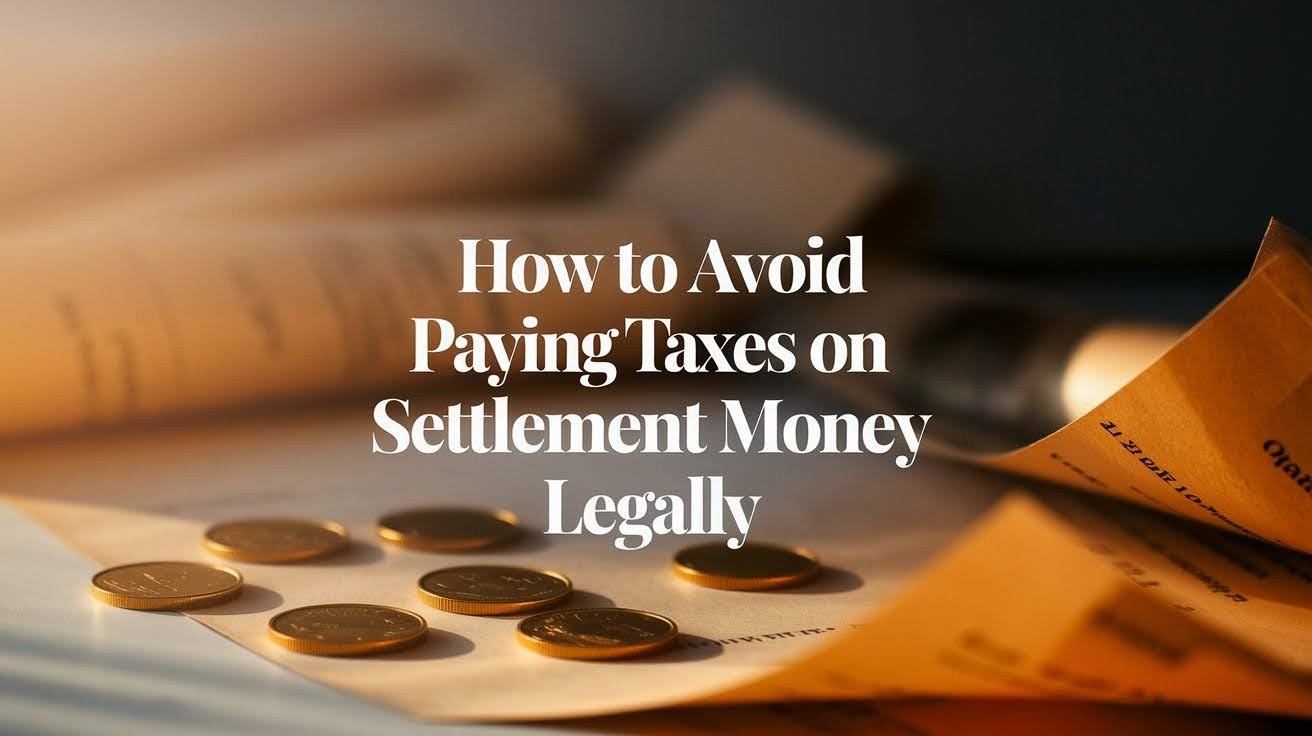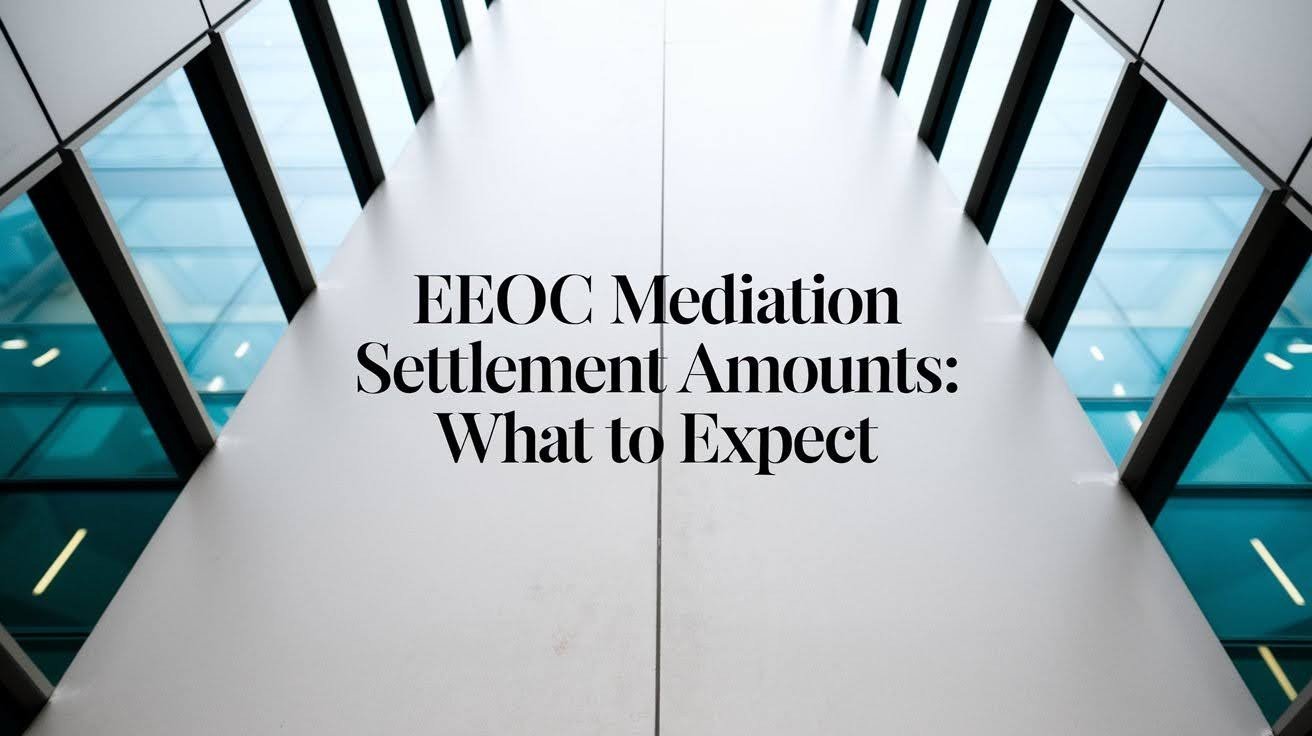Getting settlement money feels like hitting the jackpot. But then reality hits, you get a huge tax bill. Most people are unaware that some settlement money is taxed, while other types remain tax-free.
Here’s what helps: there are smart, legal ways to cut down what you owe the IRS. Learning how to avoid paying taxes on settlement money starts with understanding the basic rules. Some settlements don’t get taxed at all, while others get taxed just like your regular paycheck.
The secret lies in planning and seeking the right advice. With the right steps, you can keep more of your settlement money for yourself instead of handing it over to the government. This guide will show you methods that actually work and stay within the law.
Understanding Settlement Money Taxation

Not all settlement money gets taxed the same way. The IRS looks at why you got the money to decide if you need to pay taxes on it. This makes knowing how to avoid paying taxes on settlement money much easier once you understand the basic rules.
Money from physical injuries or sickness usually doesn’t get taxed at all. This includes car accidents, slip and fall cases, or medical malpractice. The IRS sees this money as making you whole again, not as income you earned.
But punitive damages, lost wages, and interest on settlements do get taxed. These count as regular income on your tax return. Getting the settlement classified correctly can save you thousands of dollars in taxes.
Legal Strategies to Minimize Taxes on Settlement Money

Smart settlement planning starts before you sign any papers. Working with your lawyer to structure the agreement correctly can make a huge difference in your tax bill.
Separate Physical Injury Damages Clearly
The most important step is making sure your settlement agreement clearly shows what money covers, physical harm versus other types of damages. Physical injury settlements stay completely tax-free under IRS rules.
Your lawyer should write separate line items for medical bills, pain and suffering, and physical therapy costs. When these damages get mixed with other types of compensation, the whole settlement might become taxable income.
Use Structured Settlement Payments
Instead of taking one big payment, you can spread your settlement money over several years through structured payments. This keeps you in lower tax brackets each year instead of jumping into a high tax bracket all at once.
The payment plan gets set up through an insurance company annuity that makes regular payments. This method works best when you don’t need all the money right away and want a steady income over time.
Allocate Attorney Fees Properly
How your lawyer’s fees get handled can change your tax situation in a big way. When attorney fees come out of taxable settlement money, you might still owe taxes on the full amount before fees.
Your settlement agreement should clearly state which damages the attorney fees relate to. This proper allocation can make attorney fees tax-deductible in some cases, reducing what you owe the IRS.
Avoid Interest and Penalty Buildup
Settlement agreements that include interest payments create extra taxable income you’ll need to pay taxes on. The longer your case takes to settle, the more interest builds up. Work with your lawyer to structure payments in ways that minimize taxable interest over time.
Quick settlement can sometimes save more money than holding out for a bigger amount that includes years of accumulated interest charges.
Document Everything With Clear Language
The settlement agreement should spell out exactly what each dollar covers in simple, clear terms. Vague language gives the IRS room to classify more of your settlement as taxable income.
Every category of damages should have specific dollar amounts listed separately. Good documentation prevents problems later when you file your tax return and shows the IRS exactly why certain portions shouldn’t be taxed.
Time Your Settlement Payments Strategically
When you receive settlement money, it affects how much tax you pay on it. Getting a large settlement in a year when you already have a high income pushes you into higher tax brackets.
You can sometimes delay final settlement until the next tax year or spread payments across multiple years. This timing strategy works especially well for people who expect a lower income in future years due to retirement or career changes.
Consider Tax-Advantaged Account Contributions
Once you receive taxable settlement money, you can reduce current-year taxes by putting as much as possible into retirement accounts. Max out contributions to 401(k) plans, traditional IRAs, and other tax-deferred accounts using settlement funds.
Health Savings Accounts offer triple tax benefits when you use them for medical expenses. These moves don’t make the settlement tax-free, but they reduce your overall tax bill for the year.
Advanced Tax Protection Strategies

Once you have your settlement, there are several ways to protect it from future taxes. These methods work best when you play and follow all the rules.
- Max out retirement accounts. Put as much as legally allowed into 401(k)s and IRAs to reduce current-year taxes.
- Use Health Savings Accounts. These triple tax-advantaged accounts can shelter settlement money for medical costs.
- Set up a 529 education plan. Great for families wanting to save for kids’ college costs
- Consider offshore trusts for larger settlements. Trusts in places like the Cook Islands or Nevis can provide tax benefits and asset protection.
- Time your withdrawal. Pull money out in years when your other income is low. er
These advanced methods for avoiding paying taxes on settlement money work best for bigger settlements. They require careful planning and ongoing management, but can save significant money over time. The key is making sure everything follows current tax laws and reporting requirements.
Working with Professionals for Tax Planning

Getting settlement money is complicated. The tax rules change often, and making mistakes can be expensive. This is why working with the right team of professionals matters so much.
A good tax professional understands settlement taxation inside and out. They can spot opportunities you might miss and help structure things to save money. Asset protection lawyers specialize in keeping your wealth safe from future creditors and tax problems.
Financial advisors help you invest settlement money wisely while considering tax impacts. They work with your tax pro and lawyer to make sure everyone is on the same page. Good record-keeping and proper documentation prevent problems down the road with the IRS.
Conclusion
You can learn ways to avoid taxes on settlement money, but you need to plan. You should know which settlements get taxed and which ones don’t. Money from physical injury cases usually doesn’t get taxed at all. But punitive damages and lost wages do get taxed like regular income.
Good planning can save you thousands of dollars. Write your settlement agreement carefully. Put money into tax-friendly accounts. For bigger amounts, think about advanced options like offshore trusts. Don’t try to handle this by yourself. The tax rules are complicated, and errors will cost you money.
Plan before you settle your case. Once you know how to avoid taxes on settlement money, you can make good choices that keep your wealth safe for many years.
Frequently Asked Questions
Can I Completely Avoid All Taxes on My Settlement Money?
Yes, if your settlement is only for physical injuries or sickness. These settlements are completely tax-free under current IRS rules when properly structured and documented.
What Happens if I Misclassify My Settlement for Tax Purposes?
The IRS can impose penalties, interest charges, and audit your return. You’ll need to file amended returns and pay back taxes, plus additional fees.
Are Structured Settlements Always Better for Tax Purposes?
Not always. While they can spread tax liability over time, you might miss investment opportunities or need money sooner than the payment schedule allows.
How Do Offshore Trusts Actually Reduce Settlement Taxes?
They defer taxes by keeping income offshore until they bring it back to the US. Strict reporting requirements apply, and professional management is essential.
Should I Set Up Tax Protection Before or After Receiving My Settlement?
Before is always better. Pre-settlement planning gives you more options and flexibility. Post-settlement planning is still possible, but with fewer choices available.










